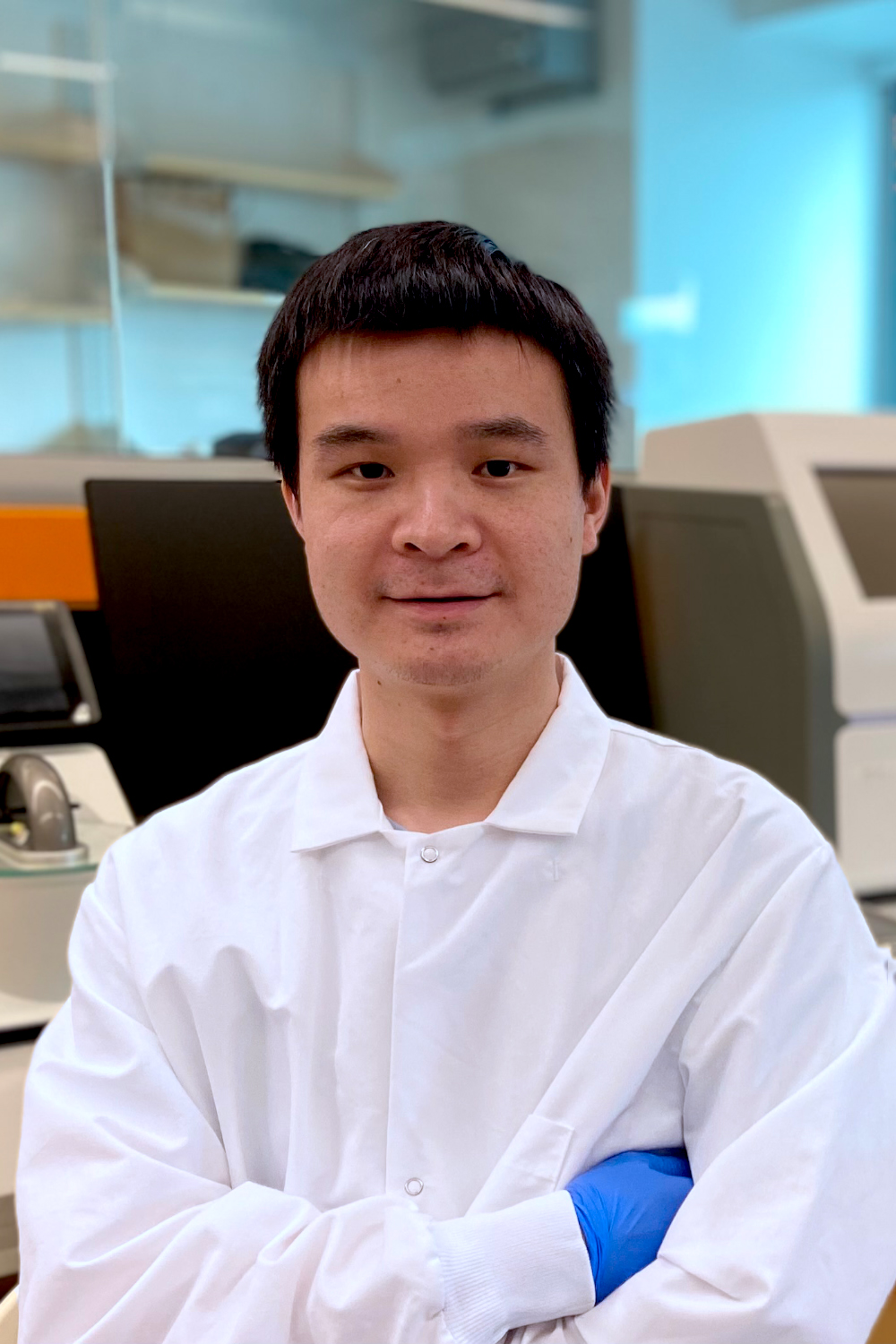
Research
Complex molecular networks control cell type-specific gene expression. Dissecting the underlying principles is critical for understanding the cause of human diseases and for developing treatments. However, such investigation remains highly challenging in cancer due to the stochastic accumulation of genetic and epigenetic alternations in the heterogeneous cellular populations. Technology advancements in single-cell genomics provided excellent opportunities to access the comprehensive profiles from complex tissues. We focused on both development of cutting-edge genomic technologies for multimodal single-cell analysis and applying these technologies to study the combined effects of multiple regulatory layers in cell fate specification and maintenance during development, diseases, and cancer.
Current Projects:
- Single-cell analysis of DNA damage
- Technology development for integrated epigenomic analysis
- Epigenomic dynamics during cell differentiation
Bio
Dr. Chenxu Zhu received his B.S. in Chemistry (2011) from Wuhan University, Wuhan, China, and Ph.D. in Biochemistry and Molecular Biology (2017) from Peking University, Beijing, China. He then moved to the U.S. and pursued postdoctoral research with Dr. Bing Ren at the Ludwig Institute for Cancer Research and the University of California San Diego branch. Started in 2022, Dr. Zhu is a tenure-track Assistant Professor in the Department of Physiology and Biophysics and the Institute for Computational Biomedicine at Weill Cornell Medicine, and he holds a joint appointment as a Core Faculty Member at the New York Genome Center. His lab focused on developing single-cell multiomics technologies to study the combined effects of multiple regulatory layers in cell fate decision and maintenance, particularly in the neural system.
Distinctions:
- 2023, NIH Director's New Innovator Award (DP2)
- 2020, NIH-NHGRI Pathway to Independence Award (K99/R00)
Selected Publications:
Bai D., Zhang X., Xiang H., Guo Z., Zhu C.#, Yi C.#, Simultaneous single-cell analysis of 5mC and 5hmC with SIMPLE-seq. Nat. Biotechnol. (2024) https://www.nature.com/articles/s41587-024-02148-9
Zhu C., Zhang Y., Li Y.E., Lucero J., Behrens M.M., Ren B.#. Joint profiling of histone modifications and transcriptome in single cells from mouse brain. Nat. Methods (2021) 18(3): 283-292. https://www.nature.com/articles/s41592-021-01060-3
Zhu C., Yu M., Huang H., Juric I., Abnousi A., Hu R., Lucero J., Behrens M.M., Hu M., Ren B.#. An ultra high-throughput method for single-cell joint analysis of open chromatin and transcriptome. Nat. Struct. Mol. Biol. (2019) 26(11):1063-1070. https://www.nature.com/articles/s41594-019-0323-x
Zhu C.*, Gao Y.*, Guo H.*, Xia B.*, Song J., Wu X., Zeng H., Tang F.#, Yi C.#. Single-cell 5-formylcytosine Landscapes of Mammalian Early Embryos and ESCs at Single-base Resolution. Cell Stem Cell (2017) 20, 720-731.e5. https://www.sciencedirect.com/science/article/pii/S193459091730070X
Zhu C.*, Lu L.*, Zhang J.*, Yue Z., Song J., Zong S., Liu M., Stovicek O., Gao Y.#, and Yi C.#. Tautomerization-dependent recognition and excision of oxidation damage in base-excision DNA repair. Proc. Natl. Acad. Sci. USA. (2016) 113, 7792-7797. https://www.pnas.org/doi/full/10.1073/pnas.1604591113
